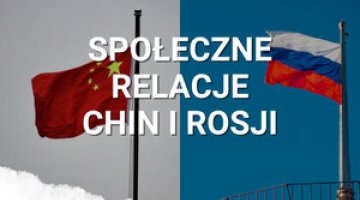The West’s sanction pressure on Russia is rising
On 12 April, the Council of the European Union adopted a directive according to which circumventing the sanctions imposed on Russia shall be considered a crime and prosecuted. The document commits all EU member states to punish perpetrators not only for violating the EU’s sanction policy, but also for inciting, aiding and abetting such actions. The maximum penalty for deliberately circumventing the restrictions will involve a prison sentence. In addition, individuals involved in these practices may be subject to fines. Companies can also be held accountable when an offence has been committed by an individual holding a leading position in the organisation. In such instances, the penalties may include a ban on this company carrying out business activity. The directive will become valid on the twentieth day after its publication in the Official Journal of the EU. Member states will be required to incorporate the provisions of the directive into their national legislation within 12 months.
Alongside this, on 12 April the United States introduced a ban on importing copper, aluminium and nickel from Russia (the United Kingdom adopted a similar restriction in December 2023). In addition, on 13 April the London Metal Exchange and the Chicago Mercantile Exchange suspended trading in these metals.
Commentary
- The EU Council’s adoption of a directive which penalises the circumvention of sanctions in all EU member states is an important step on the way to increasing the effectiveness of the EU’s sanctions policy. Thus far, the national legislation of some EU member states has not encompassed any penalties for violating the imposed restrictions. However, according to research studies and journalistic investigations, numerous types of commodities and services are still flowing from the EU to Russia, despite the current restrictions. As a consequence, the tightening of the restrictions and the fight against their circumvention have become one of the EU’s main goals. This has been reflected in the most recent sanction packages.
- Experience gained so far indicates that despite the growing number of investigations opened by the public prosecutor’s offices in some EU member states (such as Lithuania, the Netherlands, Germany and Poland), the number of companies which have been punished for violating the sanctions regime is still limited. Thus, the recently adopted directive will not automatically make the EU’s sanction policy more effective. This is because prosecuting the dishonest businessmen will depend on the level of determination of the authorities of individual EU member states, and on how effectively they monitor and supervise the enforcement of the restrictions. There have been serious problems with this issue since the EU started imposing sanctions on Russia.
- The restrictions introduced by the US and the UK in the sector of non-ferrous metals could have a major impact on reducing the Kremlin’s revenues. Until recently, this sector was effectively exempt from sanctions due to the special importance of these commodities (which are viewed as critical) to the global economy and to Russia’s position on the global market. The Russian Federation accounts for around 6% of the global production of nickel, 5% of aluminium and 4% of copper. It should be noted that the restrictions do not include palladium and platinum, and Russia accounts for 40% and 13% of their global production respectively. The suspension of trading in these metals (produced after 13 April 2024) on the London Metal Exchange and the Chicago Mercantile Exchange will particularly affect the market, as these exchanges used to serve as important platforms for trading in these commodities and setting their prices. Although Russian companies will still be allowed to sell their raw materials on the basis of bilateral contracts (outside of the exchanges), they will most likely be forced to offer price discounts to their clients. It should be noted that Russia has already been redirecting supplies of these metals onto the Asian market since 2018; this was when the US introduced its sanctions on Russian aluminium, from which it had to withdraw when the price of this commodity rapidly increased. In 2023, more than half of Russian exports were dispatched to Asia, while the Western states accounted for just a third of these exports. This suggests that the ban on importing non-ferrous metals to the US and the UK will have only a minor impact on the market, because when the embargo was introduced neither country imported these metals from Russia any longer. Despite the intensive lobbying by European producers of non-ferrous metals, the European Union has not so far joined the ban, although individual EU member states have consistently reduced their imports of Russian non-ferrous metals. For example, in 2023 Russian aluminium accounted for a mere 8% of the EU’s aluminium imports, while in 2022 the proportion was 12%, and in 2018 – 19%.




